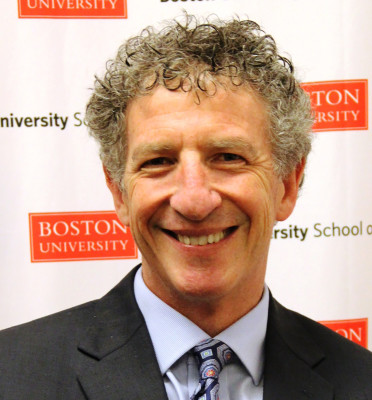
Boston University School of Medicine professor Thomas Perls has been named one of three new members of the United States Census Bureau’s National Advisory Committee on Racial, Ethnic and Other Populations, according to a Monday press release.
Perls, who also works in the Boston Medical Center Geriatrics Program, said he looks forward to assisting and improving the Bureau’s census methods, particularly on centenarians, people aged 100 years or older.
Along with Charles Bruner, executive director of the Child and Family Policy Center, and the National Urban League, a civil rights organization advocating on behalf of African-Americans, Perls was chosen because of his knowledge and expertise on cultural patterns, issues and statistical needs of “hard to count” populations, the release stated.
Perls said his competence on geriatric matters allows him to verify and ensure the accuracy of data collected on centenarians. “Other countries have had some really big problems” with gathering and counting exact data, he added.
“I’m going to be working more with [the Bureau] to hear more about what their methods are,” he said. “These kinds of counts are scientifically really important because we get to see just how fast people over the age of 100 is growing or not growing.”
As the director of the New England Centenarian Study, the world’s largest of its kind, Perls said, he was nominated at the National Institute on Aging to become one of the committee’s members.
“What goes along with being a professor is to really have a national or international presence in your area of expertise. It was very important that I participate in activities at the federal level in terms of policy, and my expertise fit into [the committee] very nicely,” he said. “I can help out the federal government and at the same time do something that’s extremely interesting to me.”
Taking care of largely Hispanic and African-American patients at BMC, Perls said he was very interested in the Bureau’s plans to accurately gather data on minority populations.
“We serve the minority population and it’s really important for the census to have proper counts of all the minorities, in part because those counts play a role in the number of representative that we have for each part of the country,” he said. “[The numbers] play a role in how the voting maps are set up.”
CeCelia Palow, one of Perls’ research assistants at NECS, said Perls is always available to give guidance and advice regarding her and her colleague’s future research endeavors and professional development.
“My experience working with Dr. Perls has only been positive. He is a great professional resource due to his extensive knowledge of research and medicine, and his desire to help his research assistants achieve their goals,” she wrote in an email. “In addition, his kind and compassionate personality makes him a pleasure to be around.”
The National Advisory Committee, comprised of 32 members from various disciplines, is tasked with advising the Bureau on multiple factors that would affect “the cost, accuracy and implementation of the Census Bureau’s programs and surveys,” the release stated.
Perls and the rest of the committee specifically will review the Bureau’s research program and strategies involving Internet data use in the 2020 Census, according the Bureau’s website. The group will focus on enumerating populations that are not easily accessed through administrative records or the Internet.














